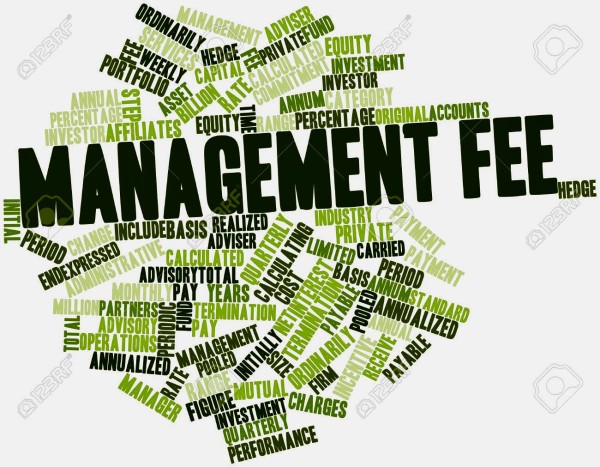
Re Pedlar 1982 BCJ 1553 deal with the criteria for an estate trustee fee for the care and management of estate assets not to exceed .4% of the average market value of the estate assets.
It was recently followed in Collett Estate 2017 BCSC 473
In 1980 the BC Trustee act was amended to allow an executor trustee to claim an additional fee for the care and management of estate assets not to exceed .4% of the average market value of the assets.
Re Pedlar estate stated inter alia:
3 Because s. 90(2) of the Act refers to s. 90(1) thereof, it will be convenient to set forth both s. 90(1) and (2) of the Act.
90.(1) A trustee under a deed, settlement or will, an executor or administrator, a guardian appointed by any court, a testamentary guardian, or any other trustee, however the trust is created, is entitled to, and it is lawful for the Supreme Court, or the registrar of that court if so directed by the court, to allow him a fair and reasonable allowance, not exceeding 5% on the gross aggregate value, including capital and income, of all the assets of the estate by way of remuneration for his care, pains and trouble and his time expended in and about the trusteeship, executorship, guardianship or administration of the estate and effects vested in him under any will or letters of administration, and in administering, disposing of and arranging and settling the same, and generally in arranging and settling the affairs of the estate as the court, or the registrar of the court if so directed by the court thinks proper. The court or the registrar of the court if so directed by the court, may so order from time to time, and the amount of remuneration shall be allowed to an executor, trustee, guardian or administrator, in passing his accounts, in addition to any other allowances for expenses actually incurred to which the trustee, executor, guardian or administrator may by law be entitled.
(2) A person entitled to an allowance under subsection (1) may apply annually to the Supreme Court for a care and management fee and the court may allow a fee not exceeding 0.4% of the average market value of the assets.
4 Briefly stated, it is apparent that s. 90(1) pertains to an allowance to be awarded to an executor, administrator, guardian appointed by any court, testamentary guardian, or any other trustee (hereinafter referred to as “a trustee”) for his care, pains, trouble and time expended by him in administering, arranging, disposing and settling an estate or trust, whereas s. 90(2) pertains to the allowance to a trustee of a care and management fee with respect to an estate or trust.
12 Under the common law of the provinces of Ontario and Nova Scotia a fee for the care and management of an estate or trust has been allowed for many years in addition to an allowance for the care, pains, trouble and time expended in administering, arranging, disposing and settling of an estate or trust: see Re Berkeley’s Trusts (1879), 8 P.R. 193; Re Williams (1902), 4 O.L.R. 501 (C.A.); Re Farmers’ Loan & Savings Co. (1904), 3 O.W.R. 837; and Re Creelman (1973), 40 D.L.R. (3d) 306 (N.S.).
13 It is apparent that by the addition of subs. (2) of s. 90 of the Act in 1980, the provincial legislature decided to accord a trustee in the province of British Columbia an opportunity to apply to the Supreme Court for a similar care and management fee. The care and management fee referred to in s. 90(2) is clearly an allowance for remuneration in addition to the allowance for remuneration referred to in s. 90(1) of the Act. To hold otherwise would frustrate the obvious intent of the legislation.
14 Each application must be decided upon its own facts. Some of the important factors to be taken into consideration in determining whether any care and management fee should be allowed and, if allowed, the extent of such care and management fee (not exceeding 0.4 per cent of the average market value of the assets of the estate), include the following:
15 (a) the value of the estate assets being administered;
16 (b) the nature of the estate assets being administered — such as an active business, a farm, real property held for investment or appreciation, a portfolio of investments and the type of such investments;
17 (c) the degree of responsibility imposed upon the trustee by the terms of the will or other instrument, including the length or duration of the trust;
18 (d) the time expended by the trustee in the care and management of the estate;
19 (e) the degree of ability exhibited by the trustee in the care and management of the estate;
20 (f) the success or failure of the trustee in the care and management of the estate;
21 (g) whether or not some extraordinary service has been rendered by the trustee in the care and management of the estate.
22 While the foregoing list of factors is not intended to be exhaustive, it has been derived, primarily, from a consideration of the Ontario Court of Appeal decisions in Re Mortimer [1936] O.R. 438, [1936] 3 D.L.R. 380 (C.A.), and Re Smith, [1953] O.R. 185 (C.A.). It is recognized that there may be other factors deserving of consideration depending upon the circumstances involved in a particular application.
23 Section 90(2) of the Act does not indicate what information should be placed before the court in support of the application for a care and management fee. In my view, the trustee should give a general summary of the estate and of his services performed in the care and management of the estate, including information with respect to the factors previously referred to, and any other factors which may be relevant to the particular application.




